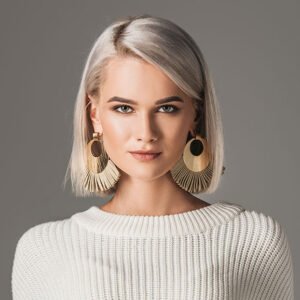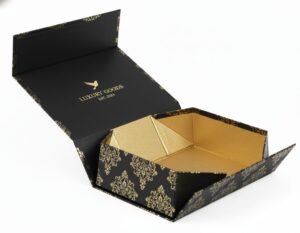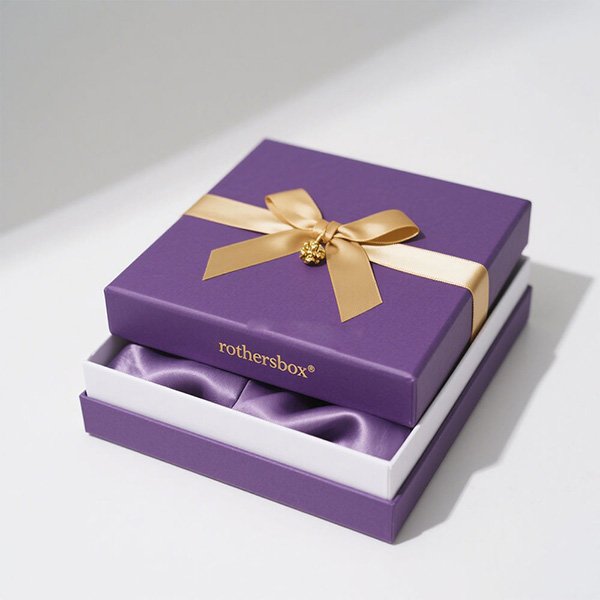
Designing custom gift boxes requires careful attention to several key factors. A strong brand identity, understanding the target audience, and choosing the right materials all play vital roles. The size and shape of boxes must fit products size, securely, while personalization helps create a unique experience for customers. Practicality matters as much as style. Balancing visual Aesthetics with cost and durability can lead to higher returns. Studies show that consumers respond positively to well-designed packaging, which can increase sales by up to 10% and deliver three to four times the initial investment.
Metric / Statistic | Value | Explanation |
|---|---|---|
$20 return per $1 spent | High rate of profitability from custom gift boxes and personalized packaging | |
Consumer purchase likelihood | 80% | Consumers are more likely to buy when brands offer personalized experiences |
Boxes as impulse purchase driver | 3rd most influential | Packaging design ranks high in impulse buying decisions |
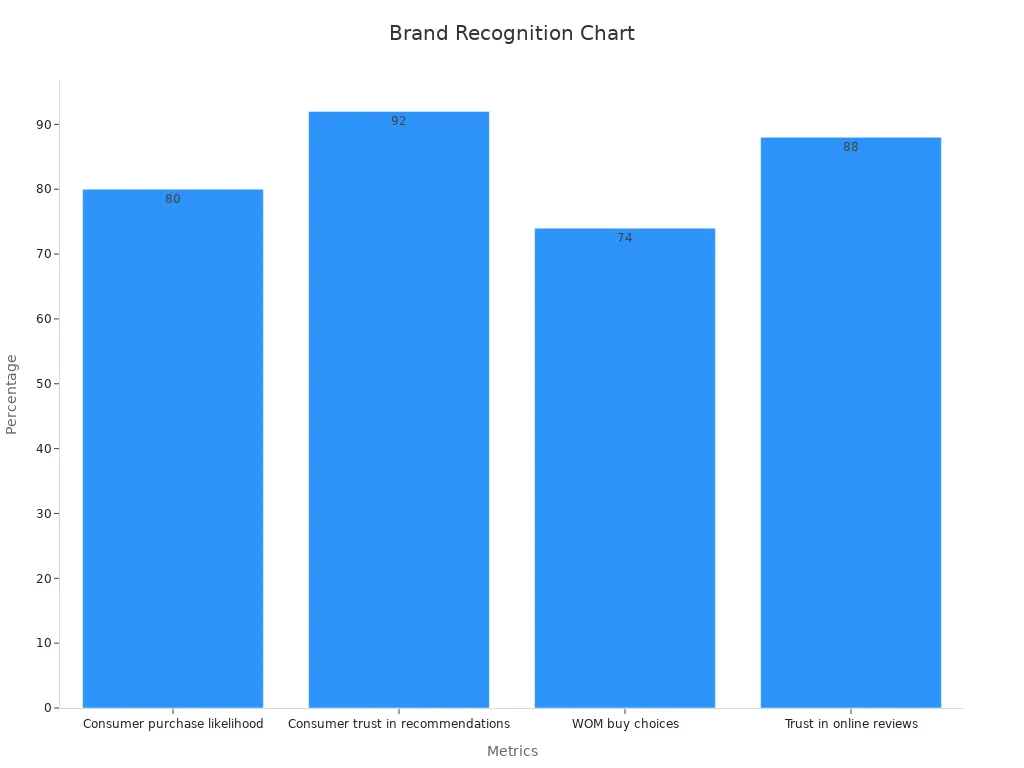
Custom gift boxes not only enhance a brand’s image but also improve the overall customer experience. Companies that invest in custom gift boxes wholesale often see better engagement and increased word-of-mouth referrals. The right boxes turn every purchase into a memorable moment for customers.
Key Considerations:
Strong brand identity in custom gift boxes builds trust and makes products memorable.
Leaning About customer preferences and application scenarios helps create packaging that connects and excites buyers.
Choosing the right box size and sustainable materials protects products and supports sustainability goals.
Thoughtful design and unique personal touches create a positive unboxing experience that drives loyalty.
Planning budget, order quantity, and timelines ensures smooth production and cost savings.
Brand Identity
A strong brand identity shapes how customers perceive custom gift boxes. Companies use packaging to communicate their story, values, and personality. Industry research highlights that custom packaging has evolved from a simple container to a strategic branding tool. Brands like Apple and Coca-Cola use packaging to create memorable experiences and emotional connections.
Aspect of Custom Packaging | Supporting Evidence from Industry Research | Examples |
|---|---|---|
Evolution of Packaging Role | Custom packaging has shifted from functional to a strategic branding tool that creates memorable customer experiences and emotional connections. | Apple, Coca-Cola, Nike |
Visual Brand Identity Components | Logos, color schemes, typography, and consistent design across packaging are critical for brand recognition and trust. | Nike's swoosh, Coca-Cola's red color, Apple's minimalist design |
Emotional Connection & Storytelling | Packaging design tells a brand story, builds trust, and fosters loyalty by connecting with consumer values and emotions. | Eco-friendly materials for sustainable brands, personalized messages in Nike's packaging |
Consistency & Recognition | Uniform use of design elements across all packaging increases brand recognition and can boost revenue by up to 23%. | Apple and Coca-Cola's consistent packaging designs |
Differentiation from Competitors | Unique shapes, colors, and graphics help products stand out in crowded markets, aiding startups and established brands alike. | Creative bottle shapes, snack packaging with resealable pouches |
Brand Values
Brands reflect their core values through custom gift boxes. Companies that use eco-friendly materials show commitment to sustainability, which builds trust and loyalty among customers. Packaging acts as a tangible symbol of brand identity, shaping first impressions and influencing customer perceptions. Personal touches, such as handwritten notes or personalized messages, foster emotional connections and increase customer retention. Consistency in branding across all packaging and platforms reinforces a cohesive brand impression and strengthens brand differentiation.
Custom gift box design effectiveness improves when packaging elements match the brand’s values.
Color theory helps evoke emotions that connect with customers.
Sustainable materials communicate environmental responsibility and increase perceived value.
Consistent branding across packaging and other channels boosts recognition and loyalty.
Colors & Logo
Color schemes and logo placement play a crucial role in brand impact. Research shows that visual hierarchy, achieved through size, color, and placement, guides customer attention to key features. Vibrant colors create emotional connections, while clear, organized design with consistent color schemes and logo placement increases brand recognition. For example, blue often signals trust, red conveys energy, and green suggests freshness. A well-placed logo and strategic use of typography strengthen brand identity and help products stand out, supporting brand differentiation.
High Brand Dependence
Consistent messaging on custom gift boxes is essential for high brand dependence. A unique brand voice, reflected in tone and language, helps customers recognize and remember the brand. Data shows that well-designed packaging can boost online traffic by 30% and increase customer retention by 30%. Personalized packaging encourages emotional engagement and loyalty. Companies that use custom gift boxes as part of a multi-channel strategy create a cohesive brand impression and extend brand exposure.
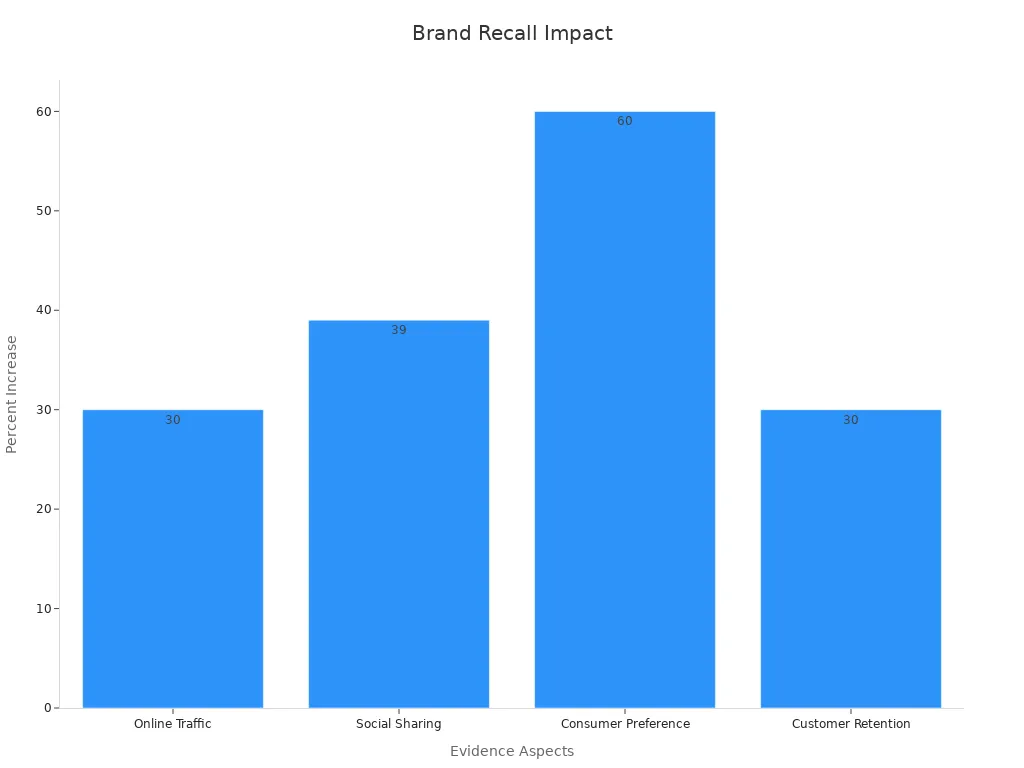
Audience & Occasion
Customer Preferences
Brands achieve greater impact when they design gift packaging boxes with their customers in mind. Companies often gather feedback through surveys and focus groups to learn what customers value most in packaging. These surveys help brands select the right colors, materials, and box sizes. For example, some customers prefer eco-friendly packaging, while others want bold graphics or unique shapes. Personalized boxes show how brands use customer preferences to curate products and packaging for a personalized experience.
Consumer demographic surveys collect important data such as age, gender, income, education, and cultural background. This information allows brands to segment customers and create packaging that appeals to each group. By analyzing these details, brands can develop custom gift boxes that reflect the tastes and needs of their audience. Coca-Cola’s “Share a Coke” campaign used personalized labels to connect with customers, increasing engagement and loyalty.
Tip: Brands that use demographic data can offer packaging with regional languages, cultural symbols, or seasonal themes, making each box feel special to the recipient.
The application of custom gift boxes
The purpose and occasion behind a gift influence the design of custom gift boxes. Brands often create special boxes for holidays, birthdays, or corporate events. For example, a Valentine’s Day box might feature heart-shaped designs and romantic colors, while a corporate gift box could use a sleek, professional look. Personalization, such as adding the recipient’s name or a custom message, enhances the experience and makes customers feel valued.
Brands can also adjust packaging size and style based on the event. Smaller boxes work well for jewelry or small tech gadgets, while larger boxes suit clothing or gourmet food. Seasonal packaging, like winter-themed boxes, helps brands connect with customers during specific times of the year. By matching the box design to the occasion, brands create memorable experiences that encourage repeat purchases and positive word-of-mouth.
Box Size & Materials
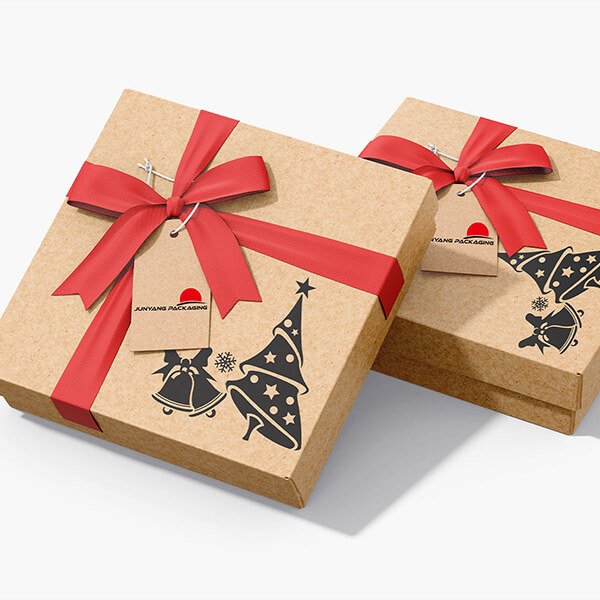
Measuring Product Size
Selecting the right box size starts with accurate product measurements. Brands measure the length, width, and height of each item before choosing a box. This step prevents wasted space and reduces the risk of damage during shipping. Oversized boxes can increase shipping costs and create a negative impression. Undersized boxes may crush or deform products. Companies often use custom inserts or dividers to secure items inside the box. These additions help maintain the product’s position and improve the unboxing experience.
Tip: Brands should measure products with any protective wrapping or accessories included. This ensures the box fits everything securely.
Material Choices
Material selection shapes the quality and perception of custom gift boxes. Cardboard and corrugated fiberboard remain popular for their strength and cost-effectiveness. Luxury brands often choose premium materials such as fine wood, velvet, or leather to elevate the unboxing experience. According to Smith (2022) in the Journal of Packaging Technology, premium materials like fine woods and luxurious fabrics enhance both the look and durability of boxes. These materials signal quality and increase customer satisfaction.
Modern packaging trends show a shift toward sustainable materials. Industry analysis reveals that 74% of consumers will pay more for sustainable packaging. Recyclable and biodegradable materials now compete with traditional plastics. While plastic offers flexibility and durability, it does not meet the growing demand for sustainability. The best boxes balance physical protection with environmental responsibility.
Aspect | Traditional Luxury Scent Boxes | Modern Luxury Scent Boxes |
|---|---|---|
Materials | High-quality traditional materials (silk, premium wood) | Premium and sustainable materials (velvet, leather, eco-friendly) |
Craftsmanship | Intricate hand-stitched details and carvings | Blend of traditional and modern advanced craftsmanship |
Durability | Durable due to premium materials | Enhanced durability with sustainable, recyclable materials |
Sustainability | Higher environmental impact | Eco-friendly features, recyclable and biodegradable materials |
Customization | Limited options | Extensive personalized design including embossing and engraving |
Technology | Minimal to none | Smart technologies like LED lighting, NFC chips, AR |
This table highlights how modern boxes use sustainable materials and advanced craftsmanship to improve both durability and environmental impact.
Meaningful Durability & Sustainability
Durability and sustainability now define the standard for custom gift boxes. Brands must ensure that boxes protect products from damage during transit and storage. Doe (2023) in Smart Packaging Journal notes that intricate craftsmanship, such as detailed stitching and finishing, increases both the strength and appeal of boxes. A luxury brand that focused on these details saw a 30% rise in customer satisfaction and a 20% increase in repeat purchases.
Sustainability has become a top priority for consumers. Industry analysis shows that most buyers prefer boxes made from recyclable or biodegradable materials. Companies that use eco-friendly packaging not only reduce their environmental impact but also attract customers who value sustainability. The 2023 Packaging Insights report projects a 10% annual growth in the luxury packaging market, driven by demand for premium and sustainable solutions.
Note: Brands that invest in both durability and sustainability build trust and loyalty with their customers. These boxes protect products and reflect a commitment to the environment.
Design & Visual Appeal
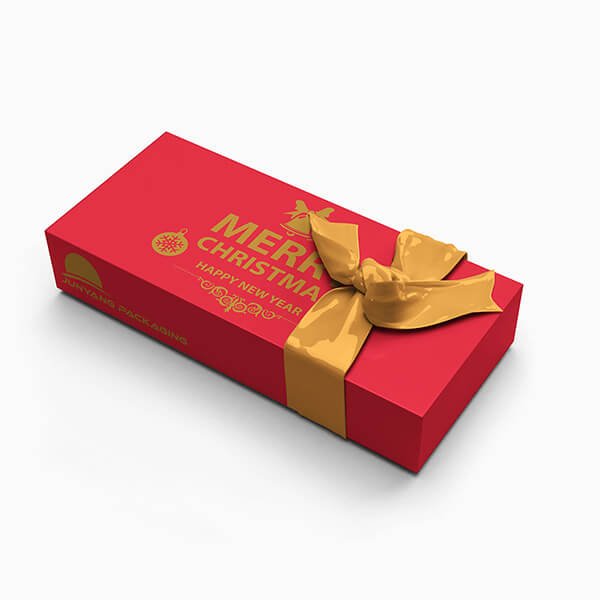
Design Gift Box Elements
A well-crafted design gift box uses visual elements to create a strong first impression. Brands select colors that evoke emotions. Red can spark excitement, while blue builds trust. Typography also matters. Elegant serif fonts suggest luxury, and bold sans-serif fonts feel modern. Imagery and graphics set the mood, whether playful or sophisticated. Premium finishing techniques like embossing, foil stamping, and soft-touch coatings add value and tactile appeal. These features make boxes stand out and increase the perceived value of custom gift boxes.
Note: Unique packaging design encourages customers to share their experience on social media, which amplifies brand reach.
Opening box Experience
The opening box experience shapes how customers remember a brand. Functional design elements, such as easy-to-open boxes and multi-layered packaging, build anticipation. Personal touches, like handwritten notes or branded inserts, foster emotional connections. Research shows that 63% of customers are more likely to buy again after a positive opening box experience. About 70% consider packaging an important factor in their purchase decisions. Nearly half have shared an opening box video online. These numbers highlight the power of a memorable experience. High-end packaging with tactile materials and layered reveals engages multiple senses. This approach creates moments that customers want to share, driving loyalty and repeat purchases.
Finishes & Crafts.
Finishes and Crafts set custom gift boxes apart. Embossing, debossing, and foil stamping add texture and shine. Soft-touch coatings make boxes pleasant to hold. Personalization, such as names or messages, makes each box unique. Sustainable materials also shape consumer perception. Eco-friendly boxes show a brand’s commitment to the environment. These crafts turn ordinary boxes into high-end packaging. They help brands deliver a premium brand experience that customers remember. Every detail, from the choice of materials to the final finish, contributes to a positive opening box experience and lasting impression.
Practical Aspects
Budget & Timeline
Brands need to set a clear budget before starting any custom gift boxes project. A well-defined budget helps companies choose the right materials and design features for their boxes. Many brands use a cost breakdown to see where most of the money goes. This breakdown often includes design, materials, printing, and shipping. Companies should also plan a timeline for production. Most custom packaging projects take several weeks from design to delivery. Delays can happen if brands do not approve designs quickly or if suppliers run out of materials. Brands that plan ahead avoid last-minute rush fees and ensure their boxes arrive on time.
Tip: Brands should ask suppliers for a detailed production schedule. This helps track progress and spot any delays early.
Custom Gift Boxes Wholesale
Ordering custom gift boxes wholesale offers many benefits. Brands save money by buying in bulk. Wholesale orders often come with lower prices per box, which helps brands stay within budget. Suppliers may also offer extra services, such as storage or delivery, for large orders. Brands should compare different suppliers to find the best deal for their custom gift boxes wholesale needs. Some suppliers offer samples before full production. This lets brands check the quality of the boxes and make changes if needed. Wholesale orders also help brands keep a steady supply of boxes for busy seasons.
Benefit | Description |
|---|---|
Lower cost per box | Bulk orders reduce the price for each box |
Consistent quality | Large runs ensure uniform custom packaging |
Flexible customization | Brands can choose sizes, colors, and finishes |
Reliable supply | Wholesale orders prevent running out of boxes |
Order Quantities
Order quantity plays a big role in the cost and flexibility of custom gift boxes. Most suppliers set a minimum order quantity for custom gift boxes wholesale. This number can range from 100 to several thousand boxes. Brands should estimate how many boxes they need for each season or campaign. Ordering too many boxes can lead to storage problems. Ordering too few can cause delays if demand rises. Brands should talk with suppliers about flexible order options. Some suppliers allow mixed designs in one order, which helps brands test new packaging styles without a large commitment.
Note: Brands that balance order quantity with storage space and demand avoid waste and keep customers happy.
Designing custom gift boxes involves several important steps. Brands should focus on brand identity, audience needs, and the right materials. A memorable experience starts with thoughtful design and careful planning. Companies that create a positive experience for customers increase perceived value and build loyalty. Each box can deliver a unique experience that customers remember. This approach helps brands stand out and show the true value of their products.
A well-designed box creates a lasting experience and boosts customer satisfaction.
